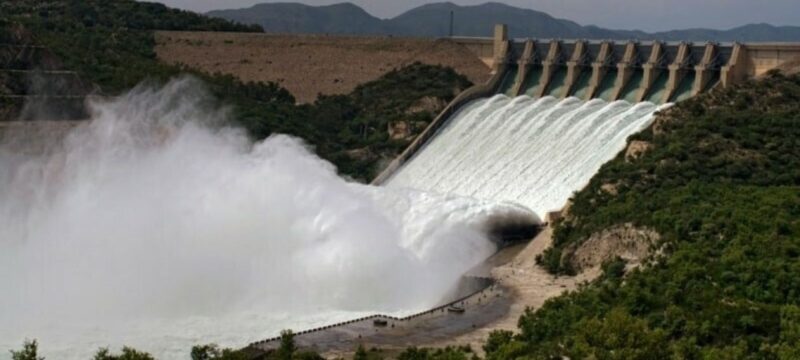India is reportedly planning to significantly increase the amount of water it diverts from a major river system that supplies water to farms in Pakistan, as a form of retaliation following a deadly attack on tourists in April that New Delhi blames on Islamabad.
This move comes after India suspended its participation in the 1960 Indus Waters Treaty, which governs the use of the Indus river system shared between the two countries. Although both nuclear-armed neighbors agreed to a ceasefire last week after intense fighting, the treaty remains suspended.
Read more: Pakistan Issues Letter to India Regarding Suspension of Indus Waters Treaty
Following the attack on April 22, in which 26 civilians in Indian Kashmir were killed in an incident India labeled as terrorism (an accusation Pakistan denies), Indian Prime Minister Narendra Modi instructed officials to fast-track the development of projects on the Chenab, Jhelum, and Indus rivers—three key water bodies under the treaty primarily designated for Pakistan’s use.
Sources indicate that one of the major plans involves expanding the Ranbir canal on the Chenab River from its current length to 120 kilometers. This canal, built in the 19th century before the treaty, runs from India toward Pakistan’s agricultural region of Punjab.
Currently, India is allowed to use a limited amount of Chenab water for irrigation, but the proposed canal expansion would enable India to divert up to 150 cubic meters of water per second, a substantial increase from the present 40 cubic meters. The plan is still under discussion and could take several years to complete, according to insiders who have seen official documents. The deliberations started last month and continue despite the recent ceasefire agreement.
Indian government bodies, including the ministries of water and foreign affairs, as well as Prime Minister Modi’s office, have not responded to requests for comment. The state-run NHPC, which manages many projects on the Indus river system, also declined to comment.
In a recent speech, Modi suggested that “water and blood cannot flow together,” though he did not explicitly mention the treaty. An Indian foreign ministry spokesperson said that India will keep the treaty suspended until Pakistan permanently stops supporting cross-border terrorism.
Meanwhile, Pakistan’s water and foreign ministries have also not responded to inquiries. Pakistan’s Foreign Minister Ishaq Dar told lawmakers that Pakistan considers India’s suspension of the treaty unlawful and maintains that the treaty remains in force. Pakistan had warned that any attempt by India to stop or divert water belonging to Pakistan would be regarded as an act of war.
The Indus river system is critical to Pakistan’s agriculture, with around 80% of its farms dependent on this water, as well as nearly all of its hydropower infrastructure serving a population of approximately 250 million. Experts, including David Michel from the Center for Strategic and International Studies, note that India’s efforts to build dams or canals that would significantly reduce water flow to Pakistan would take years to realize. However, Pakistan has already experienced some impact: in early May, water levels at a key Pakistani receiving point dropped by as much as 90% during Indian maintenance work on some Indus projects, providing a glimpse of the potential pressure India could exert.









